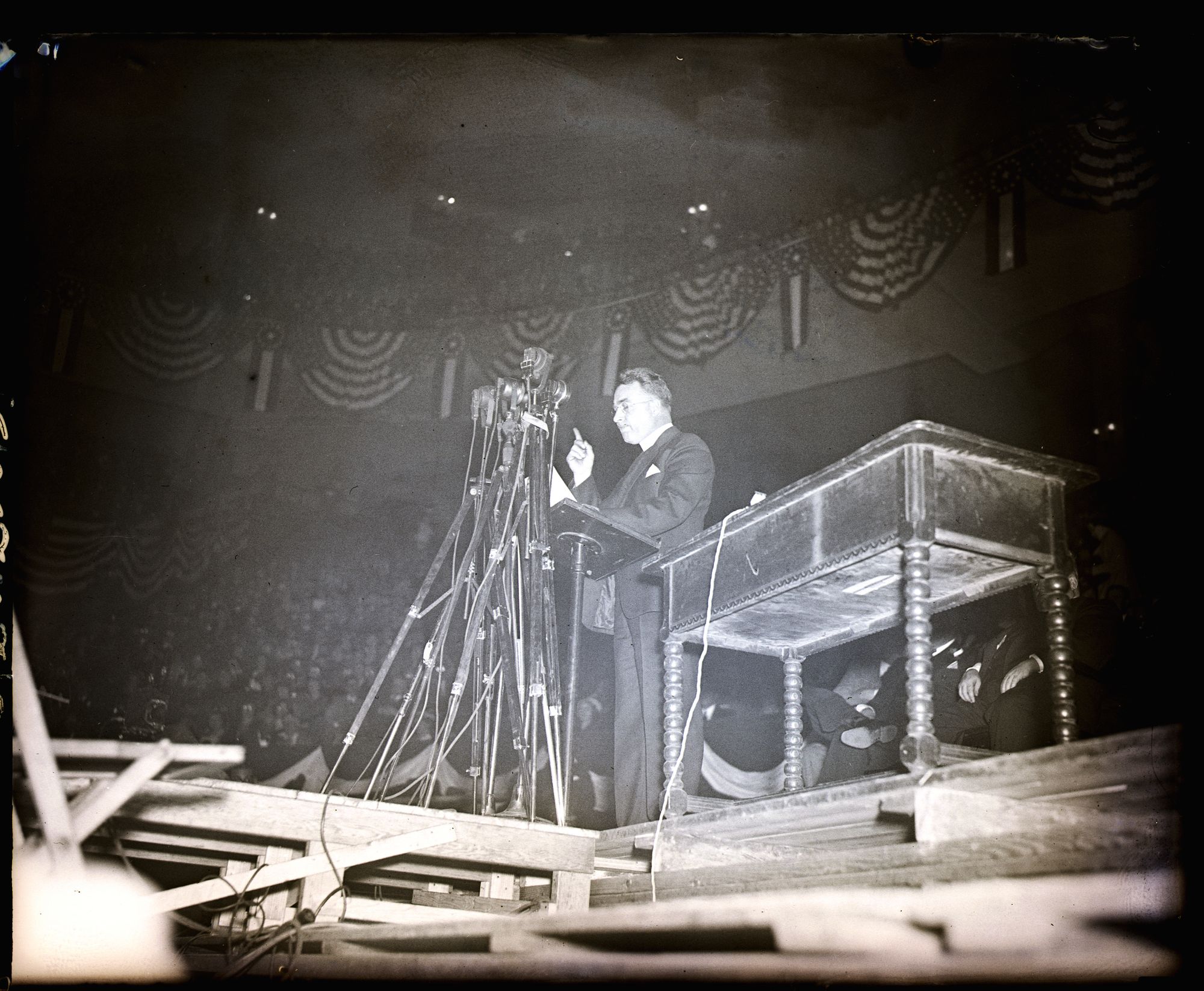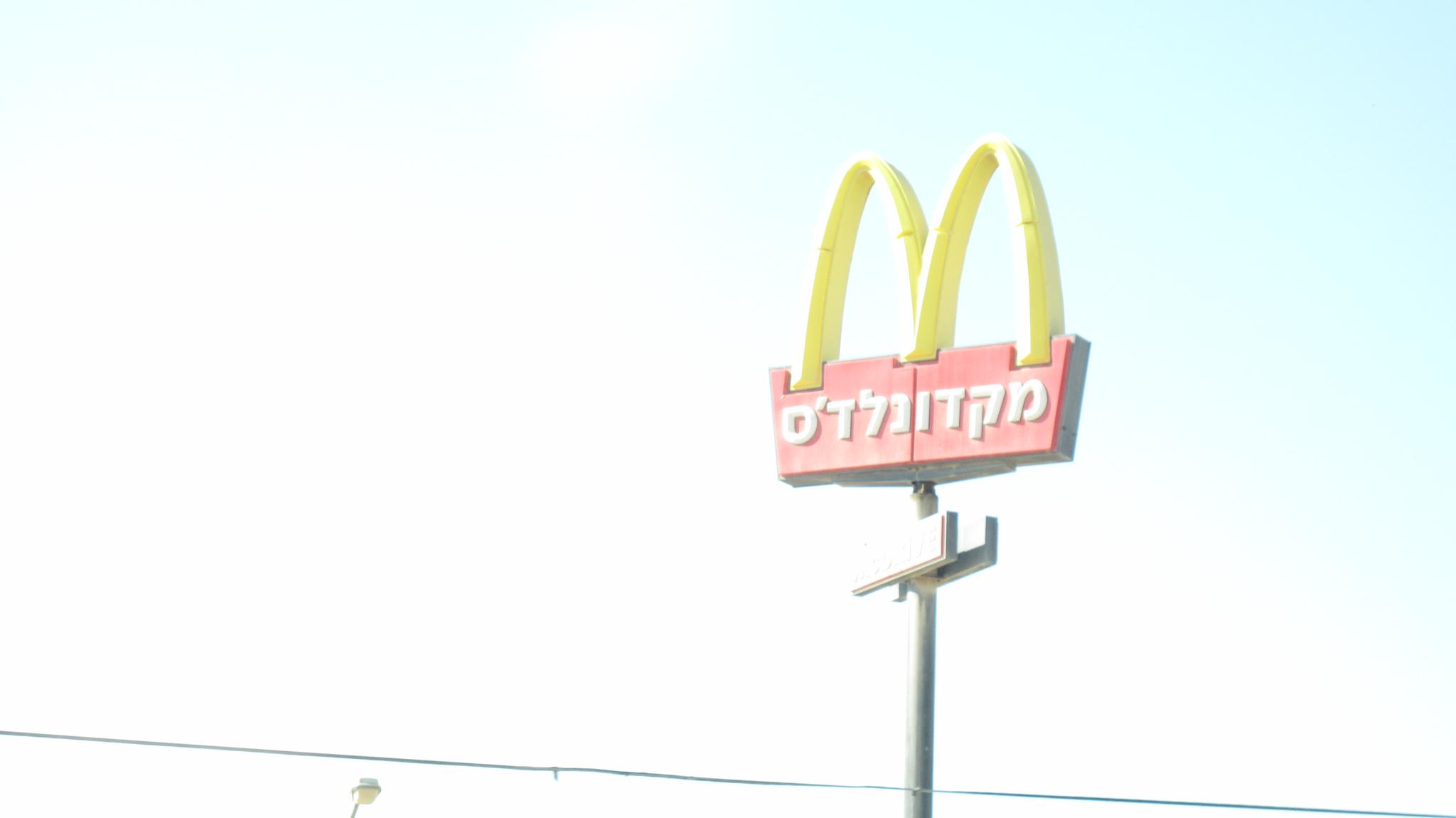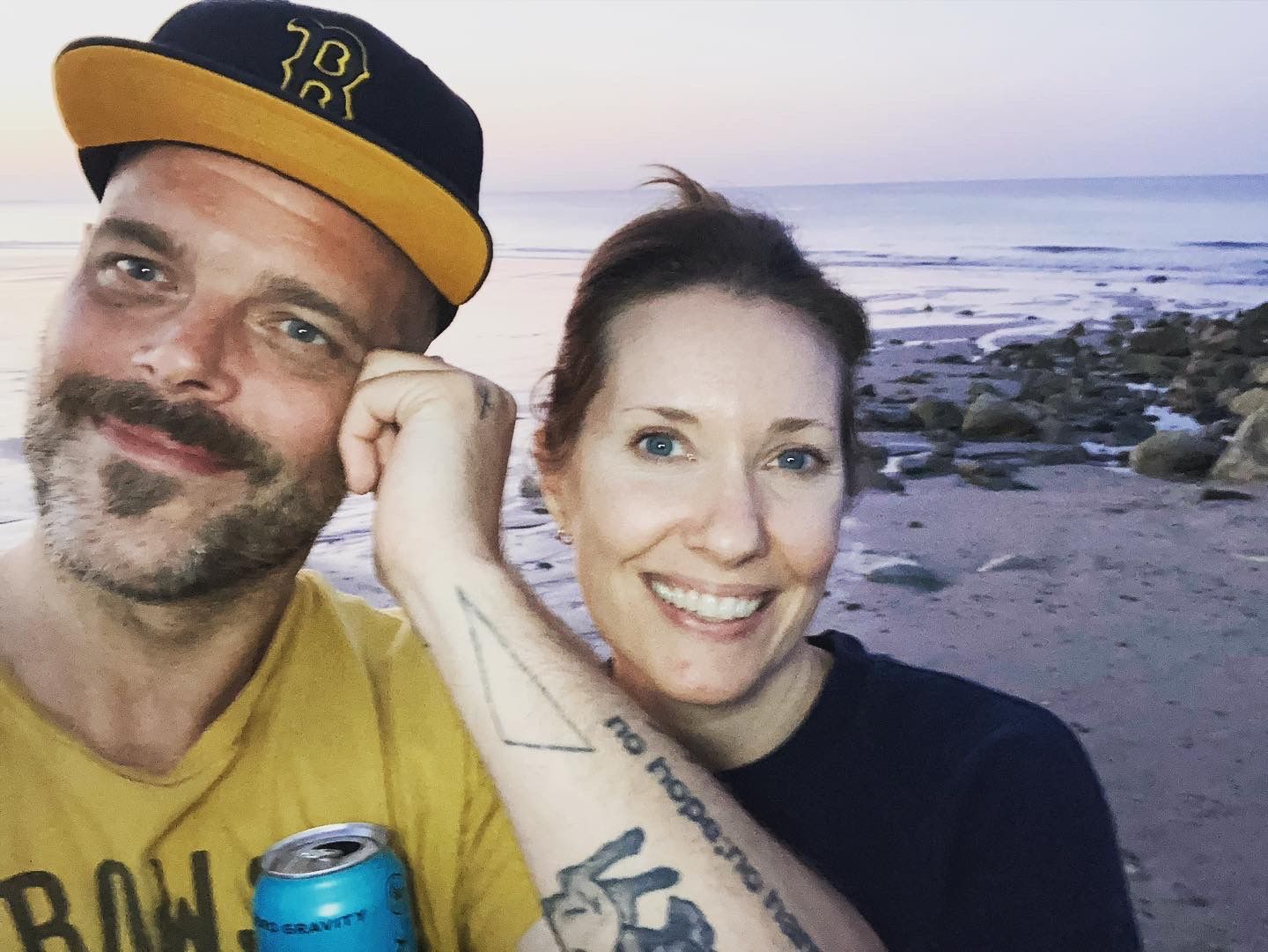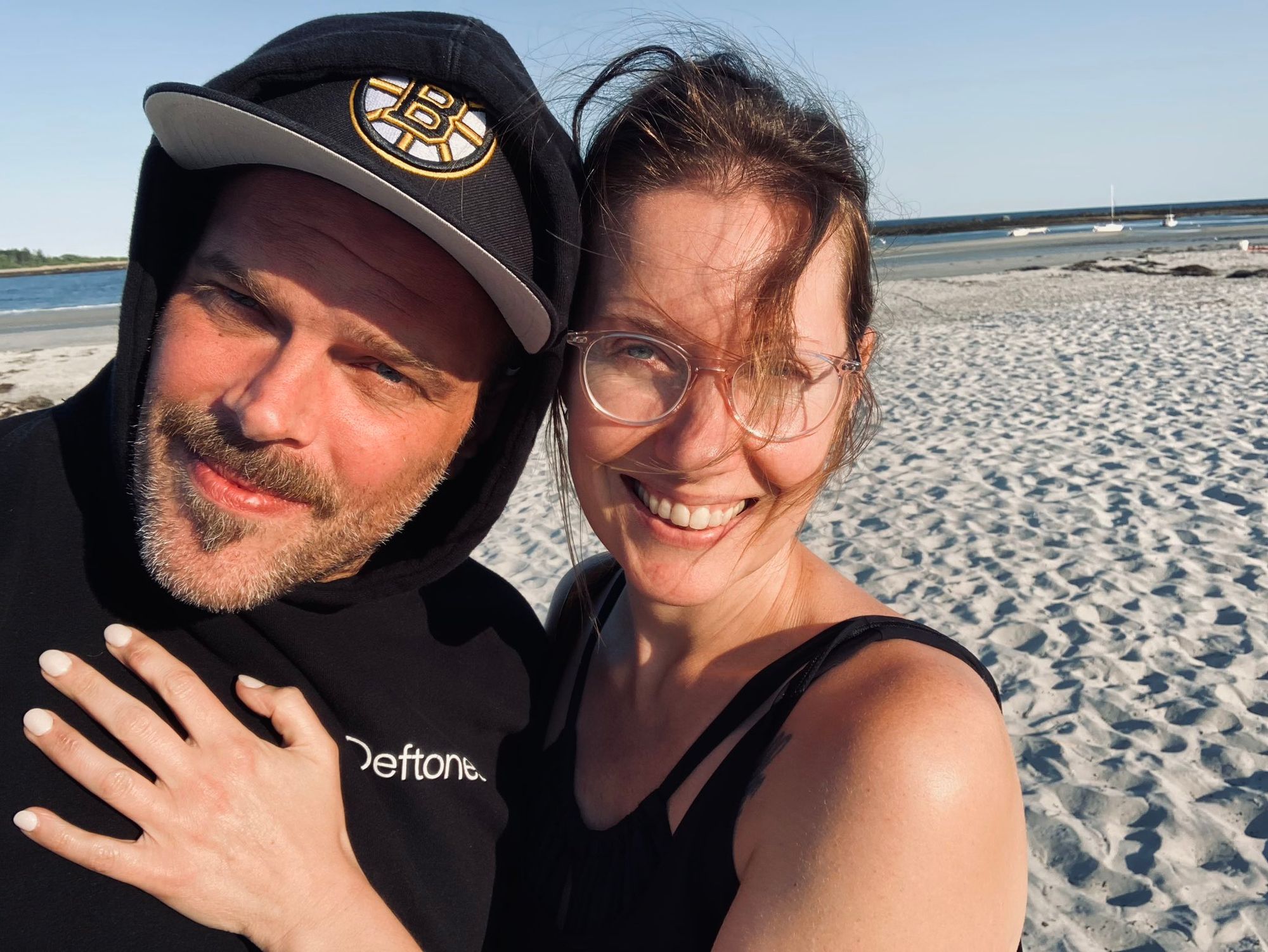Myths can't live forever
What, if anything, will remain of Israeli democracy?

Today David Grossman (no not that one, the other one) returns to write about the death of the myth of democracy in Israel. Thanks for reading as always. Please subscribe if you can to help pay our contributors. It's a nice thing to do!
First some obligatory book plugging. I love doing this shit constantly. It feels great to me personally.
Two stories from A Creature Wanting Form are excerpted in the latest print issue of Protean magazine a very fine literary journal I'm a fan of. You can read one of them here. I recommend ordering the print volume however. It's very handsome.

Here are some things people have been writing about the book of late:
It is the most unsettling book I’ve read in a long time. The book is a collection of short stories and poems which I think I’d broadly categorise as ‘horror’, but horror which is grounded in contemporary reality. This is a book about climate change, the breakdown of society, racism, police brutality, gun violence… essentially, all the catastrophes that stalk the Western world, and the USA in particular.
...The content, though, is both breathtakingly imaginative and yet also very much based in the contemporary real world. It is filled with myriad offbeat observations: O’Neils short section on the distance that the people killed by gun violence in the USA in a year would stretch if their bodies were laid end-to-end created imagery in my mind that I’ll never forget. Similarly, his climate change allegory about a pair of scuba divers accidentally abandoned at sea. ... This book was quite unlike anything else I can ever remember reading, and I’d highly recommend it.
I won’t argue if somebody wants to say Wolfe or Hunter S. Thompson did too much writing (and drug taking) and not enough reporting, but I also don’t care. O’Neil, with his fiction, sort of does the reverse. He’s known for his journalism, but his stories feel very real. They read like experiences, things seen through his eyes. Maybe he distorts the reality in hopes of making some mundane moment more powerful or readable, but it only benefits the reader. O’Neil is doing something different. It’s weird.
That’s the thing with Luke O’Neil; you are typically clueless about how things are going to go but are pulled by the tide of his narrative. And speaking of tides, a disproportionate number of these stories take place within spitting distance of the ocean. ... O’Neil’s stories somehow capture and illuminate our world slouching toward oblivion as we amuse ourselves with trivia, gossip, and videos, and all of them seem to come straightaway from his experience. Or at least from vicarious ones that he ingests, like the video of a talking crow telling its owner, “Hi Jim. The Hangman is coming.”
It’s true: the writing is agrammatical (I like that better than “wrong”), but those same instructors assign reading just as willfully broken. The gap between such small-minded parsing hobgoblins and a writer who understands that language takes the shape of its container is something we rule breakers (or rule breaker-appreciators, at least) can understand. ...
Hugging doesn’t curtail oblivion. You knew that already, but it’s healthy to have such an earnest reminder. The “wrong” writing startles you with the printed proof that it is possible, that this is a book a lucky high schooler could check out from their uptight town’s library and have their mind unfold into something utterly new.
Imagine if a bigger mainstream publication also wrote about the book? What a world that would be. I'm imagining it right now. Wow!
Real quick check this out: Something good actually (most likely) happening.
From Common Dreams:
The Massachusetts Legislature on Monday approved a budget proposal that requires the state's public schools to provide all K-12 students with free meals, making permanent a highly successful pandemic-era program.
Maura Healey, the state's Democratic governor, is expected to sign the budget into law, which would make Massachusetts the eighth U.S. state to make universal free school meals permanent—joining California, Colorado, Maine, Minnesota, New Mexico, Vermont, and Michigan.
It's a pretty hard line for me on whether or not you deserve to be [redacted] if you think children should be left to go hungry or go into debt in order to eat at school.

I do not care if some little rich shits from Lexington or wherever avail themselves of this or not. Means testing bureaucracy always costs more than it saves and creates a caste system that further harms everyone receiving the aid and especially children.
In sadder news Hell World contributor Bill Shaner's partner Katie has been diagnosed with breast cancer. She's a self-employed tattoo artist so he's set up a GoFundMe here to help her get through the next few months. Chip in if you can.
Ok here's David Grossman. Previously he wrote on the large scale protests in the country against so-called "judicial reform" and on the parallels between 1930s radio phenomenon Father Coughlin and Tucker Carlson.


Myths can't live forever
by David Grossman
If you’ve seen footage of the huge rallies in Israel lately, you’ve probably heard people talk about things like “judicial reform” and a “judicial coup.” The Israeli Knesset’s overturning of what was called the “reasonableness” standard is the first cut in what protesters are calling “salami tactics.” That means that Prime Minister Benjamin Netanyahu and his allies are cutting away, slice by slice, at what Israelis consider the norms of their democracy.
For many American Jews this has been painful. Some are using the moment to rally behind the country they believe is part of Jewish destiny. “Israel is not just a country — it is our homeland, our everything,” goes a recent op-ed in the Forward. “The threat toward Israel appears dauntingly insurmountable, but we cannot afford to cower into complicity.”
Personally, the judicial coup has made me think about the last time Israel shot itself in the head: the assassination of Prime Minister Yitzchak Rabin.
Have you ever been around a kid during a traumatic moment? They often can’t understand what’s happening, and might make jokes that drive everyone up the wall. That was me on November 4 1995 when we heard the news that Rabin had been killed. I was nine years old, and while my parents panicked, and decided we were going to attend a late night rally in light of the killing, I kept laughing to myself and saying “It’s mourning at night time!” They didn’t find the pun especially funny.
My parents weren’t alone in demanding some respect be shown for the fallen leader. Starting that night Rabin’s name became sacrosanct for liberal Zionists across the globe. A living legend transformed into a mythological figure, which is why the neo-fascist right in Israel has taken such joy in mocking him before and after death. In the months before Rabin’s murder, the right had been actively calling for his head. After they got what they asked for, they started celebrating with swastika graffiti. As the right’s power has consolidated for decades, the celebrations of Rabin’s death, and the public assertion that his killing was a good thing have only gotten bolder. Ari Shamai, the lawyer for Rabin’s assassin, Yigal Amir, was the latest to cross a red line when he recently went on an Israeli Fox News/Newsmax equivalent and started advocating for Amir’s freedom. The crowd burst into cheers.
The station soon thereafter announced that they would no longer invite Shamai on, but for anyone paying attention to Israeli society these days, the message was clear enough. Shamai was arguing for Amir’s release within the context of judicial reform, the slow-rolling judicial coup that is causing unending panic among the country’s citizens and supporters about what, if anything, will remain of Israeli democracy. It’s also brought on a fair amount of justifiable eye-rolling from Palestinians suffering under its apartheid system.
Within Yitzchak Rabin’s body stands a certain history of Israel, a narrative that formed what is known as liberal Zionism. He was born in Jerusalem in 1922, the child of migrants who sought Palestine after the chaos of the Russian Revolution and World War I. He was fighting his own wars by the 1940s with a paramilitary group called the Palmach, first against Vichy France in World War 2 on the same mission where fellow Israeli legend Moshe Dayan lost his eye, and then against the British, and then against an assortment of Arab nations in the brutal 1948 War of Independence, a war from which he emerged as a hero.
It’s hard to overstate the importance of the 1948 war for Israel and Jews around the world. At the time over 80,000 Jews remained in displaced persons camps. For Jews across the globe, this wasn’t a conflict based around the decades of Zionist colonization of Palestine, it was a referendum on the Holocaust. Rabin led the Harel Brigade, which earned its name in history during brutal fighting in Jerusalem.
More on 1948 later. First, I want to show you how I understood the myth of Rabin as a child.
Decades after the War of Independence, Rabin slowly worked his way up through the IDF’s chain of command, and for American Jews became associated with the ways his country had seemingly been able to reverse the course of Jewish history. He won in 1967, he won in the Yom Kippur War, he brought America and Israel closer together as an ambassador, and he ordered the rescue of Jews in Uganda during the Entebbe raid. Peter Finch played him in Raid on Entebbe, the 1977 NBC movie that has become a Jewish day school rainy day classic. He’s on the poster next to Charles Bronson.
When Rabin became prime minister again in 1992 he seemed like a man of destiny. That destiny seemed to be fulfilled with the Oslo Accords and the handshake with Yasser Arafat, the one you might know from history books.
“We the soldiers who have returned from the battle stained with blood,” he said, “we who have fought against you, the Palestinians, we say to you today in a loud and clear voice: ‘Enough of blood and tears! Enough!’”
And then he was shot dead. Amir, the settler fanatic, had taken out the secular statesman. His first life was over. Mocked and threatened when he was alive by the fascists who eventually took power, in death he was reborn into a specter haunting the fall of Israeli democracy.
All of that said, it really cannot be emphasized enough that the martyr of Israeli democracy, the soldier who said “enough,” was directly responsible for part of the Nakba. During the 1948 war, Lydda (a Palestinian town now called Lod) was the site of a massacre, where two hundred and fifty Palestinians were killed in half an hour. After the killing, Rabin issued an order stating that “the inhabitants of Lydda must be expelled quickly, without regard to age.”
What did that order mean?
Here’s Reja-e Busailah, a professor who was born only a few years after Rabin in 1929. In a 2016 collection called Being Palestinian, Busailah wrote an entry called “The Tree”:
Like the tongue wrenched out of your mouth, the tree was wrenched out of its native soil with all its roots exposed, dazed, writhing. And the roots were scattered and so were the fragments of the trunk, and so were the branches and the leaves. They were scattered everywhere, each limb or member reaching out for the rest, for the whole; and when it failed in its reachings, it huddled to itself in order to keep what it could keep, a flavor, a memory, a dream.
These scenes of massacre and forced displacement mirrored Jewish history so closely that, as mentioned in the recent documentary Tantura, Israeli newspapers went out of their way to say that no comparison could be made to the Holocaust. But of course, they were the ones who brought it up in the first place. It was the beginning of a pattern of denial that would only expand as the state grew, and that would only seem more absurd to outside observers as apartheid became codified into law.
I wasn’t taught about any of that at the time of Rabin’s assassination, which was fair enough, considering I was nine. But I wasn’t taught about it at all, not ever. I wasn’t taught about how this country I had been raised to adore and support and love as my own had been complicit in massacre after massacre, and how the leader I had been raised to venerate and mourn was mostly a myth. Not unlike America’s slaving founding fathers. When a White House advisor asked Rabin about the wisdom of encouraging Israeli soldiers to “break the bones” of Israeli protesters, he responded, “What would you have us do? Kill them?”
If the current right-wing government can be thanked for anything, it’s for bringing an age of illusions to an end. Before this government took power, a “unity” government boasted of its diversity while shutting down Palestinian human rights organizations and killing journalists. For years now, right-wing politicians in Israel have openly discussed the Nakba, not with shame or regret, but for the purposes of threatening to commit another one. Now that they’re in charge, they’re building up what an early right-wing Zionist called the Iron Wall. (Which I wrote about for Hell World previously).
Rabin was killed by a right-winger who was tired of pretending that he lived in anything besides a Jewish supremacist state, and now the nation’s political leaders have created a reality born of the assassin’s bullet. There is some opposition, of course, and not just to the insular fight against judicial reform. While their numbers are far too few, some brave Israelis have come to understand that any fight to save their democracy would be hollow without fighting to end the occupation. The apartheid.
The view of Israel, such as it stands today, is similar in America, where Congress recently passed a hilariously lopsided vote declaring that the state (which just approved thousands of homes in illegal settlements) is not, in fact, racist or approaching apartheid at all by a vote of 412-9-1. That’s eight more votes than Barbara Lee’s sole vote against the war in Afghanistan. Nevertheless it stands as a shining example of bipartisanship overcoming common sense.
The best chance human dignity has for winning out in Israel today is where it’s always been anywhere: within the people. Polling shows that Americans, at least, favor the notion of Israeli democracy over its Jewishness. That might not seem like a lot, but myths can’t live forever. Better to look apartheid in the face than chase after a crumbling dream.
David Grossman is a freelance journalist in Brooklyn who’s on Twitter at @davidgross_man.
My friend Neil recently recommended I check out this newsletter Episodes written by a person called Jackles and said it reminded him of my work and that he thought that I would like it and he was right on both accounts. Here are a couple of recent pieces that resonated with me that I'm sharing with permission. The stories or poems or what have you are often dark and weird and melancholy. I believe you will also like them.
Apprenticed
[Jamestown Chronicles #9]
Thirty years ago now, the first time I came to Mars' place. I can still see him tearing the door off an old refrigerator. Doesn't ask who I am or what I'm doing there, just gestures and I know by instinct to grab the back of the fridge by the condenser coil and brace it against his boot. One hinge sticks, he wiggles it and the whole unit feels like it's going to fall on him, then on me, then there's a metallic tear like a screech from an alien bird and it wobbles, me still gripping those coils, cool to the touch in my imagination or memory, and he carries the door over to a pile of scrap and tosses it on top like he's collecting wood for a fire. The whole yard was like that, sawhorses, doorknob pyramids, cars on blocks, more basketballs than we ever needed, railroad ties, tires sprouting rubber like hair, rows of paint cans weirdly organized, impeccably, by color, the whole mess radiating out in a spiral from the back entrance to the house, down a few steps to the Murder Dungeon which was really a paneled workspace where he worked on his more delicate projects, vacuum cleaners and radios and such.
I’d been busted for shoplifting. He already knew that. I told him it was only because the Bentleys had a problem with me, the way losers always try to punk out other losers, and he told me enough of that, it didn’t matter, and asked me if I’d ever handled a torch.
‘I’ve burned stuff, if that’s what you mean.’
It wasn’t. He was talking about an acetylene torch, for welding.
I hadn’t, but as soon as he said it, there wasn’t anything I wanted more in the world.
He could see that too.
‘I don’t think we’re there yet,’ he said.
He put me on light duty, hauling junk around the yard, loading it up into the cargo van. He rewarded me with a couple of cigarettes and told me I could stay there, downstairs, but if I left without telling him I was on my own.
I’d known there was some arrangement. The deputy, the young guy who’d only been in high school a few years ago, had taken me here after the thing went down at the co-op, told me to introduce myself to Mars and do what he says.
‘No good reason not to I guess,’ I said.
He was strong and walked with his legs sticking almost straight out from each other, like he’d been bent to purpose for carrying blocky objects. His face was hard then already but not rocky like it became. I’ve been meaning to come back here for months, to clean up, see what’s left. Looks like the floods saved me the trouble.
Some Runner
[FOOLSCAPE #6]
You drive across a continent.
You have places to be.
Not really.
You have one place, in particular, not to be.
She looms in the rearview mirror.
It’s like one of those optical phenomena where a city on the lake looks to be right in front of the observer on the opposite shore, or a ship appears to float above the horizon, giving people fits of religion.
But it’s right there, it is.
Same skyline, same angle.
Skyscrapers like jagged teeth, a glass and steel flower in bloom, a spiky crystal growing from a rotten corpse.
You could go on.
You go on, adjusting and re-adjusting the mirror to dull the apparition’s effects. Which is what you are doing when you drive off a bridge over the Mississippi.
It’s wintertime and there are bald eagles all over the place.
You are in your car on an ice floe.
The birds are majestic and see you as a threat.
What would you like to do next?
‘I’m pretty sure I know how to deal with several angry eagles.’
Okay. What do you do?
'I cup my hands around my face and call to them.'
How do you call to them, exactly?
‘FLAWLESS EAGLE SOUNDS’
The eagles are unimpressed.
They mock your attempts.
They make fun of your car.
The tow truck driver really doesn’t want to talk.
‘You see that back there?’
The driver does not respond.
‘The fields are broken by ice.
The moon reflects off the ice.
It’s pretty much just all moonlight and ice out here.’
You learn nothing about the driver or his life.
He drops you and the ill-suited car off at the dealership.
When the car is fixed you continue to drive.
The snowflakes get bigger, louder, more rude.
No one knows where you are.
Your phone sure doesn’t.
You cross the Continental Divide, or you don’t.
You stop in a town with a gas station.
You drive into the snow.
You are on a continent.
You stop in a town with a restaurant.
You ask questions, casually, of the staff.
‘Any news about Chicago?’
You are in a motel room.
A machine is here.
Reservation Dogs is back on for its final run and it's been characteristically as good as ever. Here are a couple of beautiful songs the show turned me onto so far this season.
Please enjoy these photos of M. and I at two different beaches from this week and last. How nice. You can follow me on Instagram I suppose if you need more of us standing like this content in your life.



